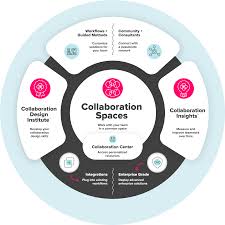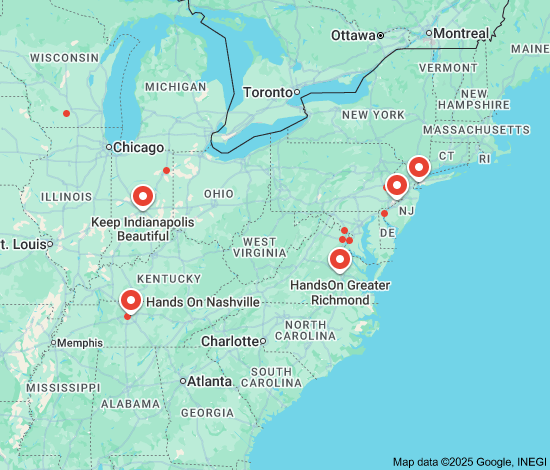The Significance of LGBTQ History Month
October is recognized as LGBTQ History Month, a time dedicated to celebrating and honoring the history, achievements, and contributions of lesbian, gay, bisexual, transgender, and queer individuals. This month serves as an opportunity to raise awareness about the struggles and triumphs of the LGBTQ community throughout history.
Established in 1994 by a high school teacher in Missouri, LGBTQ History Month aims to educate people about the rich cultural heritage of LGBTQ individuals and their impact on society. It provides a platform to highlight key events, figures, and movements that have shaped the LGBTQ rights movement and paved the way for progress.
During LGBTQ History Month, various events are organized across the country to commemorate important milestones in LGBTQ history. These events include panel discussions, film screenings, art exhibitions, and educational workshops that shed light on the challenges faced by the LGBTQ community and celebrate their resilience in the face of adversity.
One of the key objectives of LGBTQ History Month is to promote inclusivity and acceptance by fostering understanding and empathy towards LGBTQ individuals. By learning about the struggles and achievements of LGBTQ people throughout history, we can work towards creating a more inclusive society that respects diversity and upholds equality for all.
As we observe LGBTQ History Month this October, let us take this opportunity to reflect on the progress made in advancing LGBTQ rights while acknowledging the work that still needs to be done. By honoring the past experiences of LGBTQ individuals and amplifying their voices, we can build a more inclusive future for all.
Understanding LGBTQ History Month: Key Questions and Answers
- What is LGBTQ History Month?
- When is LGBTQ History Month celebrated?
- Why is LGBTQ History Month important?
- How did LGBTQ History Month originate?
- What events are typically held during LGBTQ History Month?
- Who are some notable figures in LGBTQ history?
- How can I get involved in celebrating LGBTQ History Month?
What is LGBTQ History Month?
LGBTQ History Month is a designated time, typically observed in October, dedicated to recognizing and celebrating the diverse history, achievements, and contributions of lesbian, gay, bisexual, transgender, and queer individuals. It serves as an important opportunity to educate and raise awareness about the struggles and triumphs of the LGBTQ community throughout history. By highlighting key events, figures, and movements that have shaped the LGBTQ rights movement, LGBTQ History Month aims to promote inclusivity, understanding, and acceptance while honoring the resilience of LGBTQ individuals in their quest for equality.
When is LGBTQ History Month celebrated?
LGBTQ History Month is celebrated throughout the month of October. This dedicated time serves as an opportunity to honor and recognize the contributions, struggles, and achievements of lesbian, gay, bisexual, transgender, and queer individuals in history. By commemorating LGBTQ History Month in October, we aim to raise awareness about the rich cultural heritage of the LGBTQ community and highlight key events and figures that have shaped the LGBTQ rights movement.
Why is LGBTQ History Month important?
LGBTQ History Month is important because it provides a platform to recognize and celebrate the contributions, struggles, and achievements of lesbian, gay, bisexual, transgender, and queer individuals throughout history. By highlighting the stories of LGBTQ people and their impact on society, this month helps to educate the public about the diverse cultural heritage of the LGBTQ community. It also serves as a reminder of the ongoing fight for equality and acceptance faced by LGBTQ individuals. By acknowledging and honoring LGBTQ history, we can promote inclusivity, understanding, and respect for all individuals regardless of their sexual orientation or gender identity.
How did LGBTQ History Month originate?
LGBTQ History Month originated in 1994 when a high school teacher in Missouri, Rodney Wilson, recognized the need to educate students about the often overlooked contributions and struggles of lesbian, gay, bisexual, transgender, and queer individuals throughout history. Wilson believed that highlighting LGBTQ history was essential for promoting understanding, acceptance, and inclusivity within society. As a result, he successfully campaigned for the establishment of LGBTQ History Month in October as a time to celebrate the diverse cultural heritage and significant achievements of the LGBTQ community. Since its inception, LGBTQ History Month has grown into a nationally recognized observance that honors the past experiences and accomplishments of LGBTQ individuals while advocating for equality and social justice.
What events are typically held during LGBTQ History Month?
During LGBTQ History Month, a variety of events are typically held to commemorate and celebrate the rich cultural heritage of the LGBTQ community. These events often include panel discussions featuring prominent LGBTQ activists and scholars, film screenings showcasing documentaries about key moments in LGBTQ history, art exhibitions highlighting the work of LGBTQ artists, educational workshops exploring important milestones in the LGBTQ rights movement, and community gatherings to foster unity and solidarity among LGBTQ individuals and allies. Through these diverse events, LGBTQ History Month serves as a platform for raising awareness, promoting inclusivity, and honoring the struggles and triumphs of the LGBTQ community throughout history.
Who are some notable figures in LGBTQ history?
Throughout LGBTQ history, there have been numerous notable figures who have made significant contributions to the advancement of LGBTQ rights and visibility. One such figure is Marsha P. Johnson, a transgender activist and prominent figure in the Stonewall uprising of 1969. Harvey Milk, the first openly gay elected official in California, is another iconic figure known for his advocacy for LGBTQ rights. Audre Lorde, a poet and civil rights activist, used her platform to address issues of race, gender, and sexuality. Bayard Rustin, a key organizer of the Civil Rights Movement, was also an openly gay man who fought for equality on multiple fronts. These individuals and many others have played pivotal roles in shaping LGBTQ history and inspiring future generations to continue the fight for equality and acceptance.
How can I get involved in celebrating LGBTQ History Month?
To get involved in celebrating LGBTQ History Month, there are various ways you can show your support and contribute to the recognition of LGBTQ individuals and their contributions to society. You can attend local events, such as panel discussions, film screenings, or art exhibitions that highlight LGBTQ history and culture. Additionally, you can educate yourself and others by reading books, watching documentaries, or listening to podcasts about LGBTQ history and activism. Another way to participate is to engage with LGBTQ organizations and community groups that are hosting activities or initiatives during the month. By showing your support and actively participating in events, you can help raise awareness and promote inclusivity for the LGBTQ community during this important month of celebration.




Leave a Reply